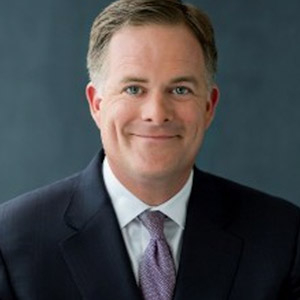Advancing Women of Color: The NCRW’s Corporate Leadership Summit
 By Melissa J. Anderson (New York City)
By Melissa J. Anderson (New York City)
“If gender diversity, cultural and economic diversity is so important to cultural change, then why is there such a paucity of women and women of color in leadership?” asked Linda Basch, President of the National Council for Research on Women.
Basch, speaking at yesterday’s opening panel for the NCRW’s 2010 Corporate Leadership Summit, The Challenge and the Charge: Strategies for Retaining and Advancing Women of Color, continued with a set of statistics revealing the lack of women of color in leadership positions across corporate, non-profit, government, science, and research arenas. “In the second decade of the 21st century, don’t we all find these numbers unacceptable?”
Basch explained that the tide is beginning to turn – that diversity in corporate leadership is beginning to be recognized as a key to success. “We need to harness this moment.” She continued, “This is a time when those with bold dreams can animate bold dreams in all of us.”
The panel, moderated by CNN Anchor Soledad O’Brien, featured Glenda McNeal, Senior Vice President and General Manager, Global Client Group, Merchant Services Americas, American Express, Aynesh Johnson, Managing Director and Global Head of the Office of Global Leadership and Diversity, Goldman Sachs, Joyce Chang, Managing Director and Global Head of Emerging Markets Strategy and Credit Research, JPMorgan, Nellie Borrero, Global Human Capital and Diversity Lead, Accenture, and Carla Harris, Managing Director, Morgan Stanley Investment Management. The women discussed challenges faced by women of color in the corporate arena, and strategies for success.
Charting Diverse Pathways
O’Brien began the discussion by asking each of the women to share their career path and why they thought they had managed to find success.
McNeal began, “I think performance is critically important, and underscored as you move up the ranks. The other thing is persistence and focus – I wanted a different situation than I had been exposed to and understood what it would take to be successful.”
Johnson continued, “In all honesty, I didn’t get there by myself. …You have to have the proper support system – from your friends who know the good, the bad, and the ugly, as well as those around you in the corporate environment.”
Chang, who began her career at Salomon Brothers, said, “What I loved about Saloman Brothers was that I could be really opinionated. …I really stood out.” But she said, because she stood out so much, she had to be “overprepared” – which ultimately helped her advance her career.
Borrero cited the importance of mentors in her life, first her boss at an internship she held at NYU Graduate School while attending Laguardia Community College who encouraged her to apply to NYU. She also discussed the importance of resilience – to help get through “the days when you feel that you don’t belong.” She continued, “And at the end of the day, there’s also pride.”
Harris joked, “I am innately negatively motivated – when you tell me I can’t do something, I am all over it like a bad smell!” She explained how she had been discouraged from applying to an Ivy League college, as well as from majoring in economics. After graduating magna cum laude with a bachelor’s degree in economics from Harvard, she went on to Harvard Business School, and eventually pursued a career on Wall Street. She stressed the importance of helping other women achieve success. She said, “We’re all here because we are standing on somebody elses’ shoulders. We have the responsibility and the obligation to reach out and help someone. We have to activate the old girls network.”
Diversity: Asset or Obstacle
O’Brien asked the panelists whether they felt they had been helped or hindered by being women of color. Chang began, “You really do have to work hard and your work has to be good.” She explained, “If you get it wrong people will remember far more than when you get it right.”
Borrero said, “The only way to build confidence is to get to know people.” She recalled her first networking event when she began her career, and seeing that no one looked like her, she felt unable to start a conversation with anyone. “I came home and thought about how I got to know my friends. …To get to people of different cultures is very hard. To build that trust factor, you have to get to know them as a person first.”
“Each and every person is diverse in some magnitude,” explained Johnson. She said that there is a lack of critical mass regarding women of color in the corporate sphere. She adviced women of color to ask themselves, “Are you willing to stay in the game? …Are you willing to carry the banner?”. She continued, “You have to be willing to say I have power. I have to be an active game changer. I have to be a catalyst.”
Chang brought up the issue of work/life balance as a point of departure for many women. McNeal said, “There are a lot of companies that engage in this dialogue. The conversation is changing. Companies are actually looking at numbers.”
Regarding diversity metrics, Harris said, “Many companies say, ‘you can’t just legislate something and make them do it.’ Yes you can!” She continued, “But this is our responsibility. We do now have seats at the table. If we can’t get it done, then shame on us.”
Borrero said, “We have to have metrics in place. We have to make companies accountable. We need to continue flexible arrangements for our women and not penalize them for it.”







